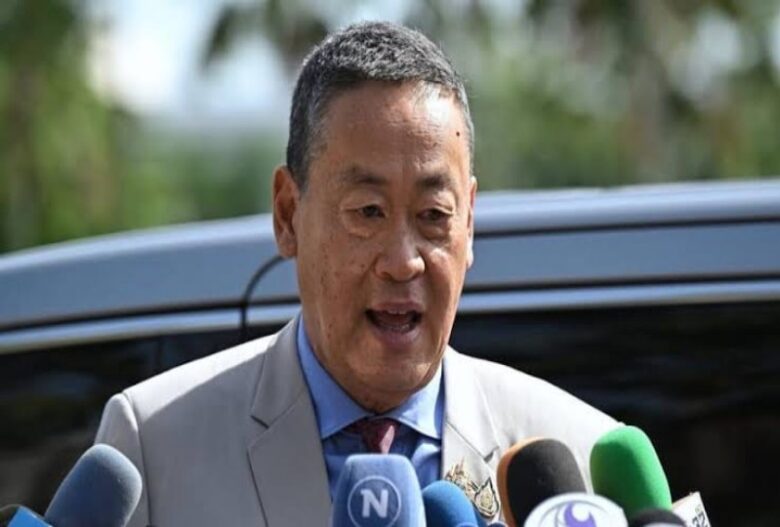Thailand’s Constitutional Court on Wednesday ousted Prime Minister Srettha Thavisin from office following his appointment of a former lawyer with a criminal history to his cabinet, raising concerns of looming political unrest and a potential reconfiguration of the ruling coalition.
Real estate tycoon Srettha became the fourth Thai prime minister in 16 years to be removed by a Constitutional Court ruling, which found him in violation of the constitution for appointing a minister who failed to meet ethical standards.
Srettha’s ousting, less than a year into his term, means parliament must now reconvene to select a new premier, adding to the uncertainty in a country plagued by two decades of coups and court rulings that have toppled numerous governments.
Last week, the exact court disbanded the popular opposition Move Forward Party, citing its campaign to reform the law against insulting the crown as a threat to the constitutional monarchy. The party has since reorganized under a new name.
The Pheu Thai Party, along with its predecessors, has consistently been at the heart of Thailand’s political upheavals, with two of its governments overthrown in coups amid a long-standing feud between the founding Shinawatra family and their conservative and military rivals.
This recent ruling could disrupt the fragile truce between political heavyweight Thaksin Shinawatra and his adversaries in the conservative elite and military, a truce that enabled Thaksin’s return from 15 years of self-exile in 2023 and facilitated Srettha’s rise to the premiership.
Despite Srettha’s defense of his appointment of former Shinawatra lawyer Pichit Chuenban—who was briefly jailed in 2008 for contempt of court related to an unproven bribery attempt—Pichit resigned in May. Now, Deputy Premier Phumtham Wechayachai is likely to step in as the caretaker prime minister.
Shinawatra Comeback?
Political experts suggest that the Pheu Thai Party is likely to retain significant influence and lead the next administration, despite a period of negotiations and uncertainty about leadership.
Olarn Thinbangtieo, deputy dean of Burapha University’s Faculty of Political Science and Law, noted that while there may be a temporary dip in confidence, “the coalition remains united”.
The future prime minister must have been nominated as a candidate by their party prior to the 2023 election, with Thaksin’s 37-year-old daughter and should she succeed, Paetongtarn Shinawatra would become Thailand’s third Shinawatra premier, following her father Thaksin and her aunt Yingluck.
Other contenders include Interior Minister Anutin Charnvirakul, Energy Minister Pirapan Salirathavibhaga, and Prawit Wongsuwan, a former army chief linked to the last two coups.
This ruling arrives during a difficult period for Thailand’s economy, which Srettha struggled to rejuvenate.
The nation faces challenges such as sluggish exports, low consumer spending, high household debt, and over a million small businesses unable to obtain loans.
The government forecasts only 2.7% growth for 2024, trailing behind regional competitors, while Thailand’s main stock index has fallen approximately 17% year-to-date, making it the worst-performing market in Asia this year.
YOU MAY ALSO READ: Senegal media outlets stage Blackout day to protest government crackdown on press freedoms









Got a Question?
Find us on Socials or Contact us and we’ll get back to you as soon as possible.